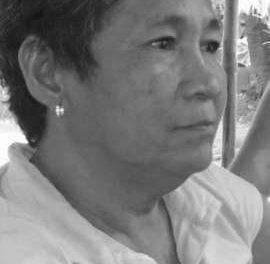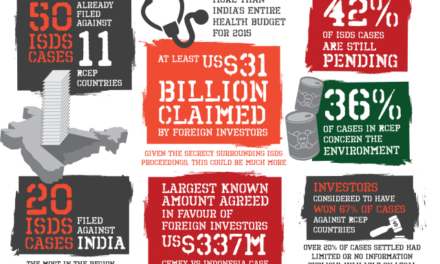The Narathiwat massacre is yet another gruesome warning of the growing intolerance and bigotry of the Thaksin government.
The assembly of around 3,000 people, unarmed and mostly young men, in the district of Tak Bai of Narathiwat Province, in the south of Thailand on October 25 ended with more than 85 people dead, 60 missing, and 1,300 detained. Most of them were Muslims. They were protesting against the detention of six village volunteers who were arrested earlier under the suspicion of supporting Islamic militants with weapons stolen from the
government.
After the protest’s violent dispersal by some 1,000 military troops with tear gas and gunshots, 6 people lay dead with gunshot wounds. The captured 1,300 people were bound together and pushed down the ground. They were later on forced into trucks covered with tarpaulins. They were transported to Pattani military camp, a travel of 120 kilometers from the protest site. Around midnight, after six hours being inside the truck, bound and on top of each other, 87 people were found dead. Dr. Pornthip Rojanasunand, Deputy
Director of the Justice Ministry’s Central Institute of Forensic Science said that 80% died of suffocation, and also convulsion, while others were crushed to death. “We can’t tell for sure if any one blocked their nostrils or mouths,” Dr. Pornthip was quoted saying after the forensic tests.
As APWLD condemns this inhumane, gross violation of democratic right to assemble of the Thai people in Narathiwat, APWLD further condemns the appalling way of how the Thaksin government dealt with the aftermath of the situation.
In a press conference two days after the massacre, the Government Spokesman Jakrapob Penkair said that the three main causes of death are over-exhaustion due to fasting; the influence of unidentified drugs; and accidents during the crackdown. This was the public statement echoed by different personalities of the government.
“Many protesters were weak and hungry because they were obeying the holy Ramadan fast which took toll on their health,” said Justice Deputy Permanent Secretary Manit Suthaporn. The Prime Minister Thaksin Shinawatra confirmed this, and added “They were exhausted, as they were protesting under a
scorching sun.”
These statements are not only downright dense, but totally atrocious.
The major cause of their death is the people’s courage for standing up to this government for their rights. And this took toll in their lives.
Under the Thaksin government, there are 17 documented people, known as activists and defenders of human rights, who have been killed or made to disappear. One of them is Mr. Somchai Neelaphaijit, a Muslim human rights lawyer who was providing legal assistance to the arrested five Muslim men
accused of having links with the Muslim extremists. Mr. Somchai has not yet been found after having disappeared earlier this year.
Clearly, the Narathiwat massacre is not an isolated case. This is part of a pattern of violence – a systematic, programmatic way of silencing people, of decimating critics and oppositionists. This is a manifestation of growing fascism of this government. Different ways have been employed to create fear – from actual killings of rights defenders, to arrests, and filing of harassment legal cases against activists.
With all of these cases of human rights violations, some of them documented by its own National Human Rights Commission in its recent report, the Thaksin government remained unmoved. “If we’re soft, they’ll think we’re caving in. I won’t have it,” Thaksin said in an interview. Who they were he referring to? They who know their rights and are fighting for them? They who believe that power should reside on the masses and not on a single business tycoon? They who have long been struggling for justice and freedom from exclusion and discrimination?
Democracy is indeed a soft word for Thaksin. And, no, he won’t have any of it. A true challenger of due process of law, the Prime Minister said, “It would not be right to assume every suspect was innocent until proven guilty.”
As the Thai public reeled from the high number of casualty, and the way they died, Thaksin was proud of his military force. “They did a great job. They have my praise.”
These are chilling statements coming from the head of a country touted to be the flag bearer of democracy in the region.
While the officials kept repeating that the people didn’t die of gunshot or inflicted wounds, this does not in any way lessen the blood on the hands of the military, and of the Thaksin government for the death of protesters from Narathiwat.
APWLD echoes the condemnation of these gross acts of human rights violation of the Thaksin government. APWLD believes that the martial law imposed on the South provinces simply provide justification for these violations, and therefore martial law should be lifted.
APWLD expresses its solidarity with the Thai democracy movements who stand firm in their fight for their rights; who persevere in fostering harmonious relationships among peoples of different races, religion and beliefs; and who continue to struggle for a just, humane and genuinely democratic Thailand.
APWLD further calls on the global people’s movement to demand that the Thaksin government respect and uphold the human right of every individual, without regard to gender, class, religion and ethnicity.
Asia Pacific Forum on Women, Law and Development
(APWLD)
Chiang Mai, Thailand
October 28, 2004
[email protected]
www.apwld.org








